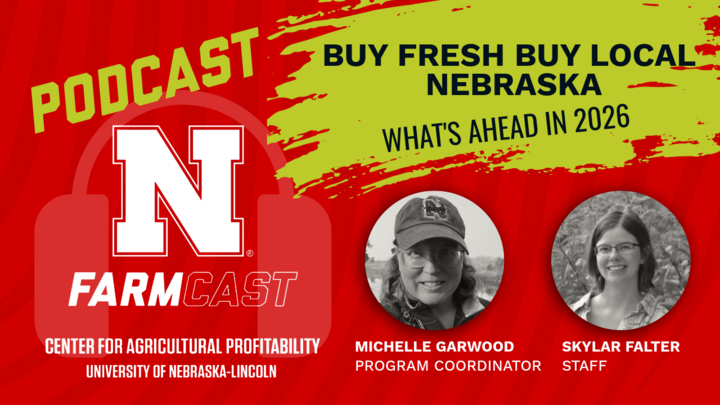“Every day when I would leave for work, and again when I would come home, I would walk past our key basket at the front door and see his keys in there. Walking past that basket was this constant little reminder that he was deployed, (physically gone), you know, overseas, but he was always here with me, (psychologically present), in my thoughts.”
A colleague of mine shared this story with me about her personal experience embracing change and coping with an ambiguous loss during her spouse’s deployment in 2010. Hearing that story got me thinking — what are those transitions, those moments, that give us that same feeling? And especially when we're looking at big changes, like what happens when there isn't anyone willing to take over the farm or ranch?
In my work with agricultural families, I’m increasingly encountering a difficult but growing reality: many farms and ranches today have not identified a successor from within their family. This absence of the next generation can simultaneously simplify some aspects of estate planning while deeply complicating others, particularly the emotional side of grieving the end of era.
This article marks the beginning of a new series aimed at helping farm and ranch owners who are facing this crossroads. Over the coming articles, I’ll explore essential steps such as the legal documents you’ll need, identifying suitable non-family successors, and tools that can make the transition smoother. While I’m not sure yet how many articles this series will include, your questions and feedback will help shape its direction, I do know where I want to begin: with the emotional toll that this situation can take.
For many, the idea of not passing the family operation on to a family member isn’t just a logistical transition, it’s a deeply personal loss. This feeling often manifests as ambiguous loss, a type of grief that lacks clear closure or recognition. Unlike the death of a loved one, ambiguous loss stems from the absence of something we hoped for or envisioned. In this context, the ambiguous losses many farm and ranch owners feel are often unspoken but profound: the grief of watching a dream, sometimes generations in the making, begin to fade.
If you’re experiencing this kind of grief, please know that you’re not alone, and your feelings are completely valid. Common feelings may be disappointment, frustration, or even guilt that your children or grandchildren have chosen a different path, despite your efforts to prepare them for taking over your operation. These emotions should be shared and discussed with family members. The intimate feelings deserve to be acknowledged and addressed before you move forward with any formal planning.
Many of us elect to dive into logistics and paperwork of farm and ranch succession, but taking time to process the emotional side of this transition is essential in addressing the loss and grief. Here are a few approaches that may help you cope with the grief and gain clarity as you chart your path forward:
- Think Outside the Box
Your legacy doesn't have to end with your family. Step beyond tradition and consider creative succession plans—like mentoring a trusted employee, working with a neighboring producer, or partnering with a conservation group. Legacy is about values, not just lineage.
- Talk Honestly as a Family
Have open and honest discussions with your family. Understanding each other’s feelings, values, and decisions can help ease emotional strain and pave the way for constructive planning.
- Seek Outside Perspectives
Don’t be afraid to look beyond your immediate circle. Agricultural consultants, extension educators, and estate planners can offer objective advice and resources tailored to your situation.
- Listen With Respect
Each family member will process this differently. Be willing to hear what others have to say and acknowledge differing views and emotions.
- Take a Break When Needed
Sometimes stepping away from the issue, whether it’s for a weekend or a season, can provide clarity and emotional reset.
- Understand the Impact of Change
Accept that transitioning to a non-family successor may involve structural, cultural, and operational shifts. Try to view this as an evolution of your legacy, not an end.
- Share How You Feel
Whether with your spouse, a counselor, or trusted friend, don’t bottle up your feelings. Talking them through can reduce stress and reveal insights you hadn’t considered.
While the grief of ambiguous loss can feel overwhelming, it doesn’t have to define the rest of your story. In future articles, we’ll explore the nuts and bolts of transitioning your business to an unrelated party. The legacy you’ve built matters, regardless of who carries it forward. With thoughtful planning and emotional readiness, you can shape a future for your farm or ranch that honors your hard work and vision.
Listen: Nebraska FARMcast
Extension Educator Jessica Groskopf discusses navigating the emotional side of farm and ranch transition when there is no family successor in the picture.
Other articles in this series
- Part 1: Embracing Change and Coping with Loss (this article)
- Part 2: The Question
- Part 3: Advisory Team
- Part 4: Everyone Needs These Documents
- Part 5: 7 Common Concerns
- Part 6: Leasing Land to Non-Related Parties
- Part 7: Option-to-Buy Agreements with Non-Related Parties
- Part 8: Right of First Offer and Right of First Refusal
- Part 9: Selling Assets During Life




